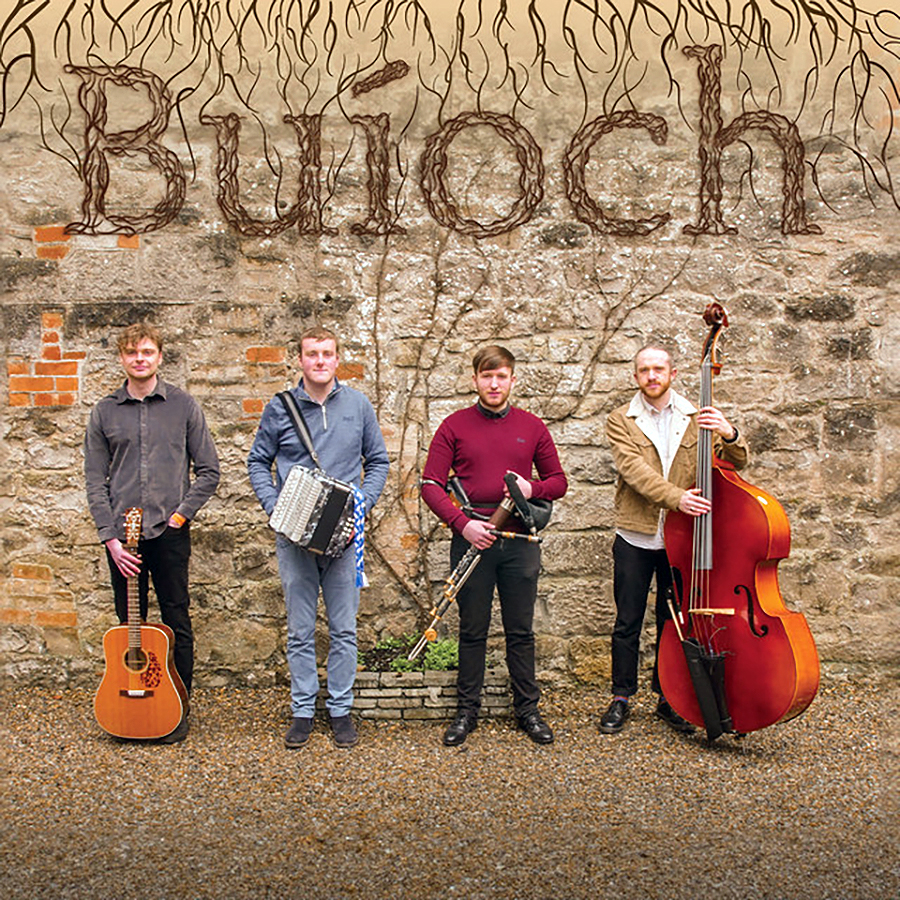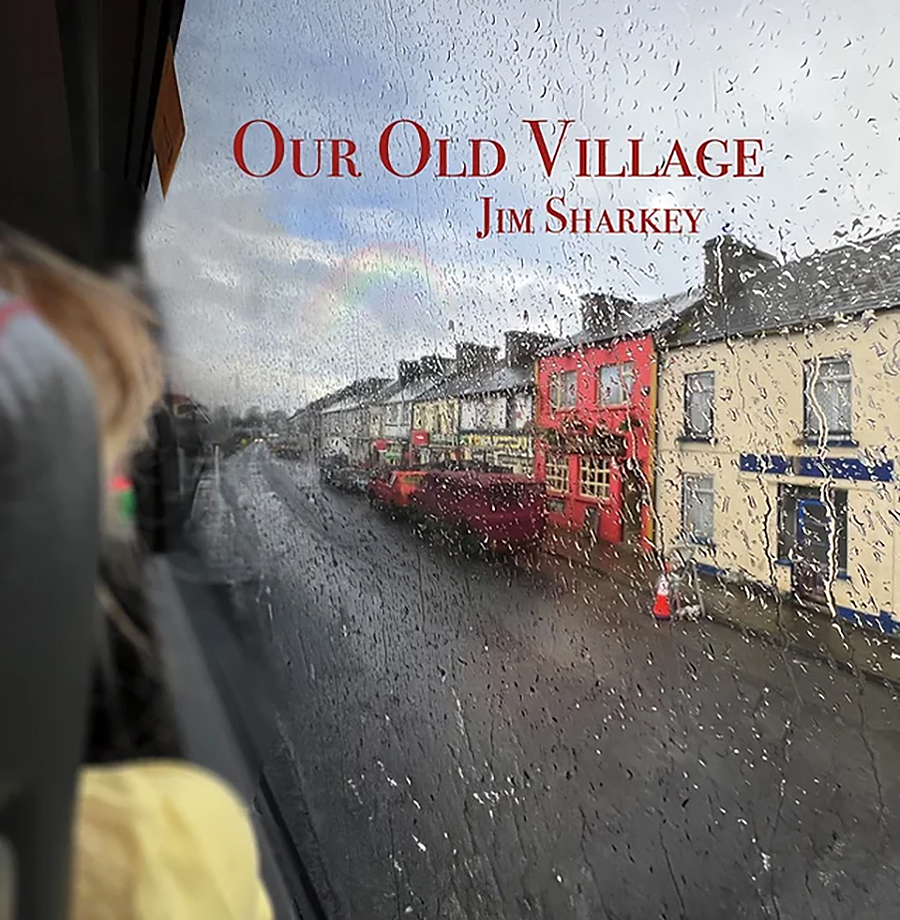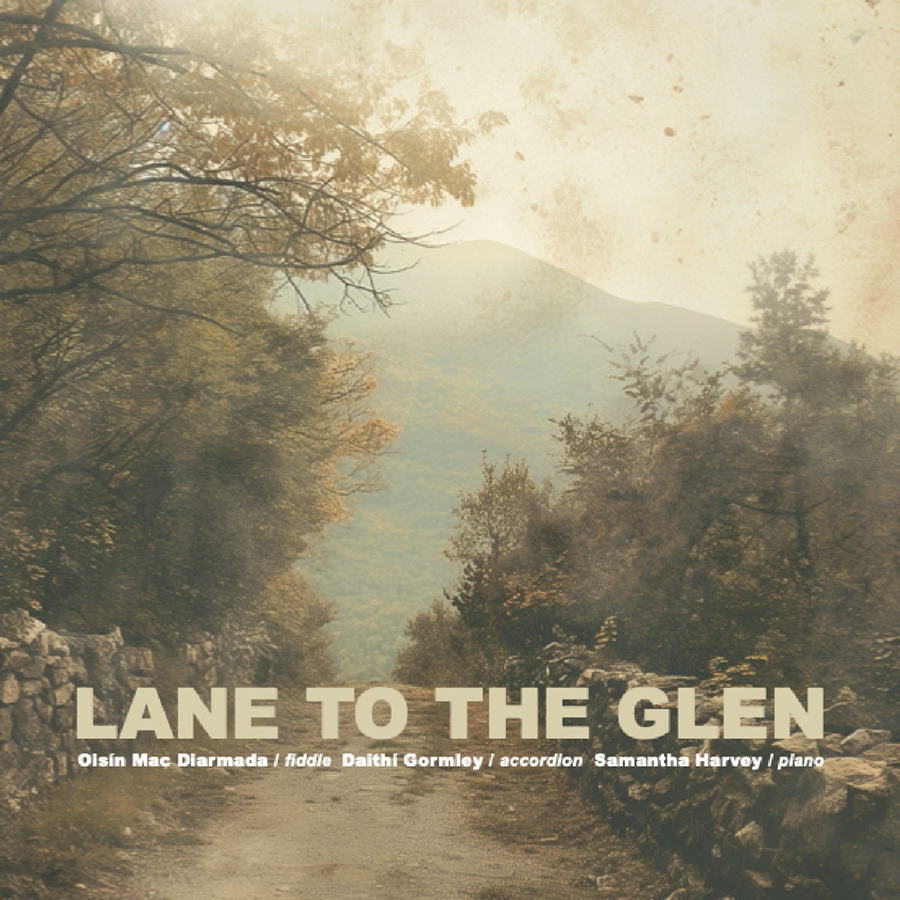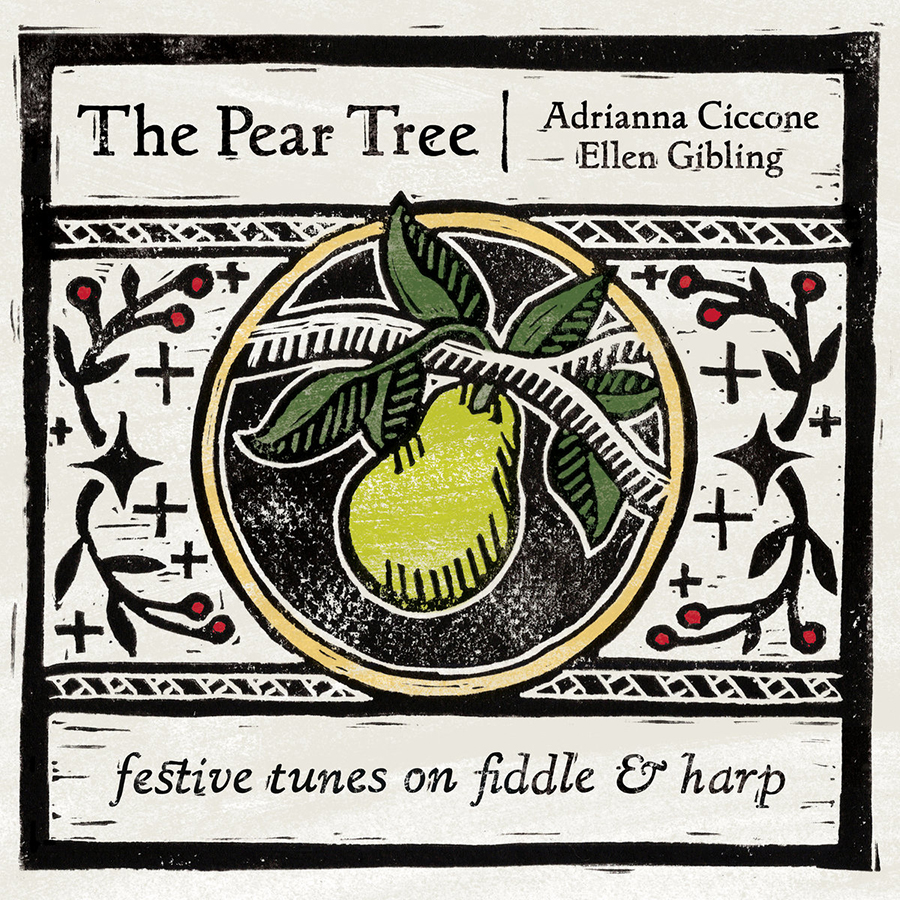November 25, 2024
First, an apology: This space has been extremely negligent of late about keeping up with new or recent Irish/Celtic-related music albums. So, here’s a look at some releases over the past several months:
•Uilleann piper Leonard Barry, a Kerry native who earlier this year released his  third solo album, “Littoral,” said in a recent interview with Bright Young Folk that, whatever styles or approaches he has been inspired to apply to his piping, “it’s the tune that tells you what to do and the more skills you have as a musician…influences how you can portray that in your music.”
third solo album, “Littoral,” said in a recent interview with Bright Young Folk that, whatever styles or approaches he has been inspired to apply to his piping, “it’s the tune that tells you what to do and the more skills you have as a musician…influences how you can portray that in your music.”
On “Littoral,” Barry displays not only superb, dexterous piping skills, but tunes from an array of sources that reflect wide-ranging explorations of, and experiences with, Irish music – and even beyond it. The slip jig “Munster Rake,” for example, comes from the 1810 O’Farrell’s Pocket Companion for Irish/“union” pipes; “The Pipe in the Hob” evokes his youthful interest in The Bothy Band, and more specifically, piper Paddy Keenan; a trio of slides, “Bedford Cross/Knockaboul/Johnny Mick Dinny’s,” is a classic Sliabh Luachra salute; the hornpipe “First of May” originally came to him from local musicians during his North Kerry teenage years; a set of reels includes compositions by a pair of Galway legends, accordionist Joe Burke (“Rigney’s”) and fiddler Paddy Fahy (“Paddy Fahy’s” – what else?).
For further variety, there’s the slow air “Aisling Gheal,” from Cúil Aodha, in the Gaeltacht Mhúscraí of West Cork. And one of the most ear-catching tracks is a pair of non-Irish mazurkas, “La Valse de Pasteriaux” by Breton musician Jackie Mollard,” and “La Polverita Fiera” by Pittsburgh musician and scholar-author L.E. McCullough, who recorded it on his 1998 album “Saint Patrick Was a Cajun.”
Barry is supported by some stellar guest musicians: guitarist Shane McGowan; fiddlers Kevin Burke and Andy Morrow; cellist Alice Allen; Michael McGoldrick on flute and bodhran; and bouzouki players Michael Holmes, Seamie O’Dowd and Brian McDonagh. His duet with Burke on the aforementioned Sliabh Luachra medley is the stuff of joyfulness, and Holmes’ presence is not to be overlooked, either. Allen adds a soulfulness to the pair of mazurkas, as does Morrow’s fiddle and McGowan’s understated guitar. McGowan also forms a prodigious rhythm combo with McDonagh for the reel set “St. Ruth’s Bush/The Old Pensioner/Monastereden Fancy”; listen here for a fine example of Barry’s use of regulators, too. Like Barry says, the tunes tell him what to do, and he wisely follows their advice.
•More than a few musical ventures fell by the wayside due to COVID, but  Buíoch actually started because of it. The Laois-based band came together during the pandemic as part of a project in which local musicians were invited to compose their own material as a way to keep up morale and creativity during the difficult time. Once fully gathered – Ruaidhrí Tierney (button accordion), Kurt Dinneen Carroll (whistle, uilleann pipes) and Dale Mckay (guitar, bodhran), later joined by David Harte (double bass) – they went on to write and arrange their own tunes, all very much in the traditional Irish style but clearly shaped by innovations of recent decades. Their debut album has lots of grit and gumption as well as quieter, more pensive moments.
Buíoch actually started because of it. The Laois-based band came together during the pandemic as part of a project in which local musicians were invited to compose their own material as a way to keep up morale and creativity during the difficult time. Once fully gathered – Ruaidhrí Tierney (button accordion), Kurt Dinneen Carroll (whistle, uilleann pipes) and Dale Mckay (guitar, bodhran), later joined by David Harte (double bass) – they went on to write and arrange their own tunes, all very much in the traditional Irish style but clearly shaped by innovations of recent decades. Their debut album has lots of grit and gumption as well as quieter, more pensive moments.
Somebody in some Irish trad online forum somewhere once snarked, "Hey, why not just play all your own tunes? Easier than learning the stuff that's already out there." Yeah, OK. But to play original music that sounds as good as this, you need to be well versed in the tradition on which it's based, and a reading of Buíoch's combined and individual resumes show plenty of experience in that domain. Highlights of the album include "The Cones," a set of polkas that has some superb shifts of tone and mood – especially Carroll's whistle on the transition from the first to second tune – and shows the outstanding rhythm section they have in Mckay and Harte; "The Flake" comprises three slip jigs, with Carroll's whistle leading a nifty mix of instruments (bass, accordion, guitar and bodhran) on the first, titular tune, Tierney taking over for the second, and then joining with Carroll on the last to take it home.
"Trip to Lucca" is a reel by Tierney that gets an increasingly exotic treatment – it was inspired by an adventure in Italy, hence the Mediterranean seasoning, notably via Mckay's guitar; "Harte of the Band," is a straight-on power reel led by Tierney, but features a double bass solo that sets up the denouement, Mckay's bodhran providing a solid complement to Harte; "College Dropout" showcases a pipes/accordion duet at the beginning, and makes you rather wish there was more of this on the album.
The presence of a double bass, alongside whistle and the occasional pipes plus a guitar, may inevitably conjure up comparisons to Lúnasa, but Buíoch has nonetheless staked out its own auspicious place in Irish music.
•There’s not a lot of variation to the sound of singer-songwriter Jim Sharkey, a  Hartford native who spent most of his childhood in Roscommon before moving back to the US as a young man. His songs are slow or moderately paced, his singing soft and tranquil, accompanied by his guitar accompaniment (and occasional harmonica) plus a few guest musicians. But there’s such an innate gentleness to his music, a care and concern expressed about our humanity, on a large and small scale, and that tenderness is once again abundant on his fourth album, “Our Old Village.”
Hartford native who spent most of his childhood in Roscommon before moving back to the US as a young man. His songs are slow or moderately paced, his singing soft and tranquil, accompanied by his guitar accompaniment (and occasional harmonica) plus a few guest musicians. But there’s such an innate gentleness to his music, a care and concern expressed about our humanity, on a large and small scale, and that tenderness is once again abundant on his fourth album, “Our Old Village.”
As with Sharkey’s past recordings, some of the songs are personal and familial – like the title track, a collection of memories and images of his childhood home, and especially of his late sister – and yet they also have a universality to them. “My Little Man” conveys the joy of being a grandparent, but also the sense of responsibility for this harbinger of a new generation (“I have to be so careful, so mindful and aware/and get him back home safe to mom and dad”). “My Dog Henry” is a salute to a four-legged companion, while “Ms. Ellison’s Room” pays homage to a dedicated teacher and his former colleague, clearly a role model for adult and child alike (“Write this down, learn it by heart/love is where I always start”).
But Sharkey acknowledges complexities and concerns in the wider world, such as on “Trouble” – written during Covid as an expression of hope and encouragement – and “Pass the Wheel,” which wrestles with the impetus to challenge ills and evils as one gets older, or having the younger generation take the initiative. One of the album’s more striking tracks is “Vitruvian Man,” a collection of artistic impressions and references gleaned from a visit to a museum.
Among the guest musicians are Colin Farrell (of Lúnasa) and Dave Curley, who help bring a traditional Irish feel to the musical accompaniment; they also lead a medley of Roscommon reels. In addition, Farrell composed three instrumental pieces, including a pair of slip jigs, one of them in honor of Sharkey’s grandson.
•“Lane to the Glen,” by Oisín Mac Diarmada, Daithí Gormley and Samantha  Harvey, is the very model of the straight-ahead, just-play-it, pure-drop type of album, which is hardly a surprise when you consider the folks responsible for it. Mac Diarmada, a co-founder of acclaimed traditionally rooted band Téada, was born in Clare but wound up moving to Sligo and later became infatuated with its fiddle style, especially as championed by the legendary Michael Coleman. Sligo-born Gormley is a generational talent on button accordion whose solo album “Fiddling without a Bow” received great acclaim, and he and Mac Diarmada co-published The Fiddlers of Sligo Tunebook, regarded as a must-have among many trad-minded musicians. Harvey, who is married to Mac Diarmada, is a talented pianist who also excels as a dancer and accordionist, and has toured with Téada and in other collaborations.
Harvey, is the very model of the straight-ahead, just-play-it, pure-drop type of album, which is hardly a surprise when you consider the folks responsible for it. Mac Diarmada, a co-founder of acclaimed traditionally rooted band Téada, was born in Clare but wound up moving to Sligo and later became infatuated with its fiddle style, especially as championed by the legendary Michael Coleman. Sligo-born Gormley is a generational talent on button accordion whose solo album “Fiddling without a Bow” received great acclaim, and he and Mac Diarmada co-published The Fiddlers of Sligo Tunebook, regarded as a must-have among many trad-minded musicians. Harvey, who is married to Mac Diarmada, is a talented pianist who also excels as a dancer and accordionist, and has toured with Téada and in other collaborations.
The format, if you will, is basic: Mac Diarmada and Gormley play in masterful unison and Harvey provides a good, steady but nuanced accompaniment that is mindful of the melody, and doesn’t straitjacket it: Take a listen to the rip-roaring trio of reels, “Dogs Among the Bushes/Paddy Gavin’s/Paddy Gavin’s,” or a bracing pair of jigs, “Galloping O’Hogan/Magpie in the Tree,” or the nimble hornpipes “O’Kelly’s Fancy/The Fiddlers’ Contest.” Both Mac Diarmada and Gormley get a solo track with Harvey, which serves to further accentuate the brilliance of these musicians.
But “Lane to the Glen” is also noteworthy for the choice of material and the respect it conveys to so many eminent figures in the Irish tradition: Charlie Lennon, Michael Coleman, Ed Reavy, Seamus Connolly, Josie McDermott, Paddy O’Brien, Joe Burke, Martin Connolly, Mary Ellen Giblin, and Paddy Kelly are among those cited as sources and/or composers for the tunes – as is long-time Boston-area resident Brendan Tonra, whose reel “St. James’ Kitchen” is featured here, paired with the venerable “Lord Gordon.”
•A more recent, and timely, arrival is "The Pear Tree," an eight-track album of  traditional, original, and popular holiday tunes played by fiddler Adrianna CIccone and harpist Ellen Gibling. Ciccone, who graduated from Berklee College of Music and stayed in Boston for a few years before moving back home to Nova Scotia, draws her style and inspiration from traditions literally across the continent, whether it’s her native Ottawa Valley, Cape Breton, Québecois, or Southern Appalachia. Gibling has walked both the classical and traditional music paths, and her collaborations include folk duo The Bombadils and orchestral pop ensemble The Heavy Blinkers.
traditional, original, and popular holiday tunes played by fiddler Adrianna CIccone and harpist Ellen Gibling. Ciccone, who graduated from Berklee College of Music and stayed in Boston for a few years before moving back home to Nova Scotia, draws her style and inspiration from traditions literally across the continent, whether it’s her native Ottawa Valley, Cape Breton, Québecois, or Southern Appalachia. Gibling has walked both the classical and traditional music paths, and her collaborations include folk duo The Bombadils and orchestral pop ensemble The Heavy Blinkers.
“The Pear Tree” is simple and straightforward, no lush reverb, ambient synthesizers, 100-piece orchestra, or angelic choir – just Ciccone and Gibling playing gracefully and tastefully. Their selections range from the familiar (“In the Bleak Midwinter,” “The Cherry Tree Carol,” “The Sussex Carol,” “Ding Dong Merrily on High”) to somewhat more obscure (“Petit Papa Noel,” “Divinum Mysterium,” Saint Alphonsus Liquori’s “Tu Scendi Dalle Stelle,” “The Ardgroom,” by the great Cork accordionist Finbarr Dwyer) to originals (Ciccone’s “Charlie’s Welcome,” The Back of Winter” and “L’Abbiamo”; Gibling’s “The Anticipation”). Be advised if you’ve taken The “Little Drummer Boy” Challenge, because that’s on here, too.
The album is a blessing on its own merits, but also in context of the all-too-clamorous modern holiday season. It won’t bring peace on Earth, but peace in your living room is not a bad thing at all.

